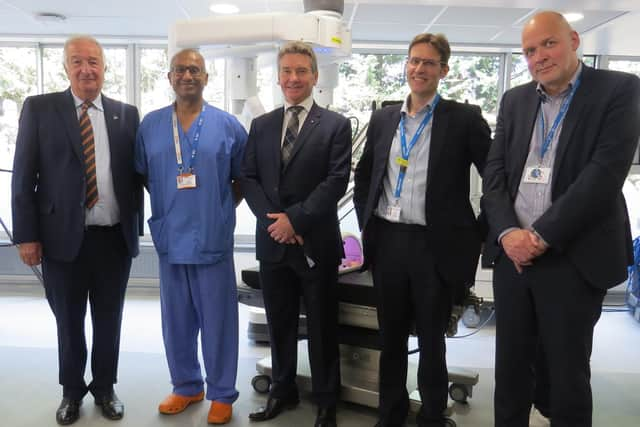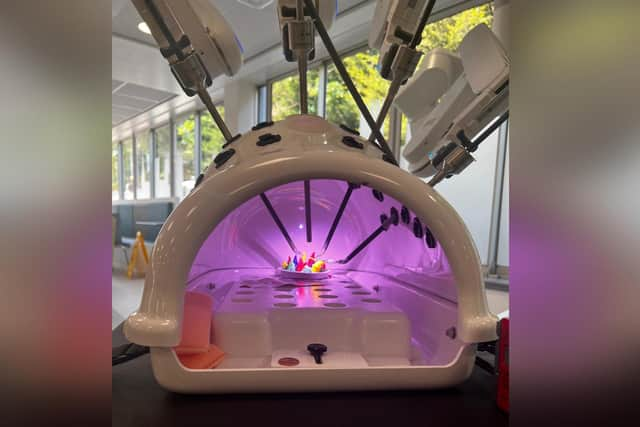Scarborough area cancer patients set to benefit from York Hospital's innovative new robot surgical system
and live on Freeview channel 276
The surgical robot has been funded by charity York Against Cancer with a donation of £680,000 over the next two years, to enable the operation of the robot.
The innovative technology is less invasive than open surgery and allows more precision in difficult to access areas than traditional key-hole surgery, leading to fewer complications.
Advertisement
Hide AdAdvertisement
Hide AdIt is suitable for a wide range of procedures including cancers in hard to reach areas.


Ian Yeowart, Chair at York Against Cancer, said: “We are delighted to be able to fund this innovative technology which is so badly needed at York and Scarborough Hospitals NHS Foundation Trust.
"Along with our many other important projects this is exactly the type of support that our many benefactors and supporters expect of us and we are pleased that our funding has enabled its early introduction.”
Praminthra Chitsabesan, Colorectal Surgeon at York and Scarborough Hospitals NHS Foundation Trust, said: “The surgical robot is a brilliant surgical instrument and by investing in this advanced technology we will improve services across the board.
Advertisement
Hide AdAdvertisement
Hide Ad"It will permit us to provide more complex surgery minimally invasively, build up our services and help with recruitment, allowing us to catch up with other hospitals in the area that are already using this technology.


“It will be the next step in the evolution of our services - and hopefully we will be on the way to developing a regional cancer unit of excellence and an advanced minimally invasive surgery unit. We know how valuable it will be for certain procedures, such as for low rectal cancers, and the great news is that patients needing complex surgery will be treated nearer to home.”
Consultant Urologist, Ben Blake-James, said: “We’re already seeing the advantages.
"Patients are more able to return to activity with less post-operative pain and we have been able to offer key-hole surgery, where before the surgery would have been an open operation.”
Advertisement
Hide AdAdvertisement
Hide AdThe surgical robot is known as the da Vinci Surgical System.
It translates the surgeon’s hand movements at the console in real time, bending and rotating the instruments while performing the procedure.
The tiny wristed instruments move like a human hand, but with a greater range of motion and greater precision.
Combined with a significantly magnified view it will make difficult operations much easier, allow an earlier return to function for patients with hopefully better outcomes in both cancer and benign disease.